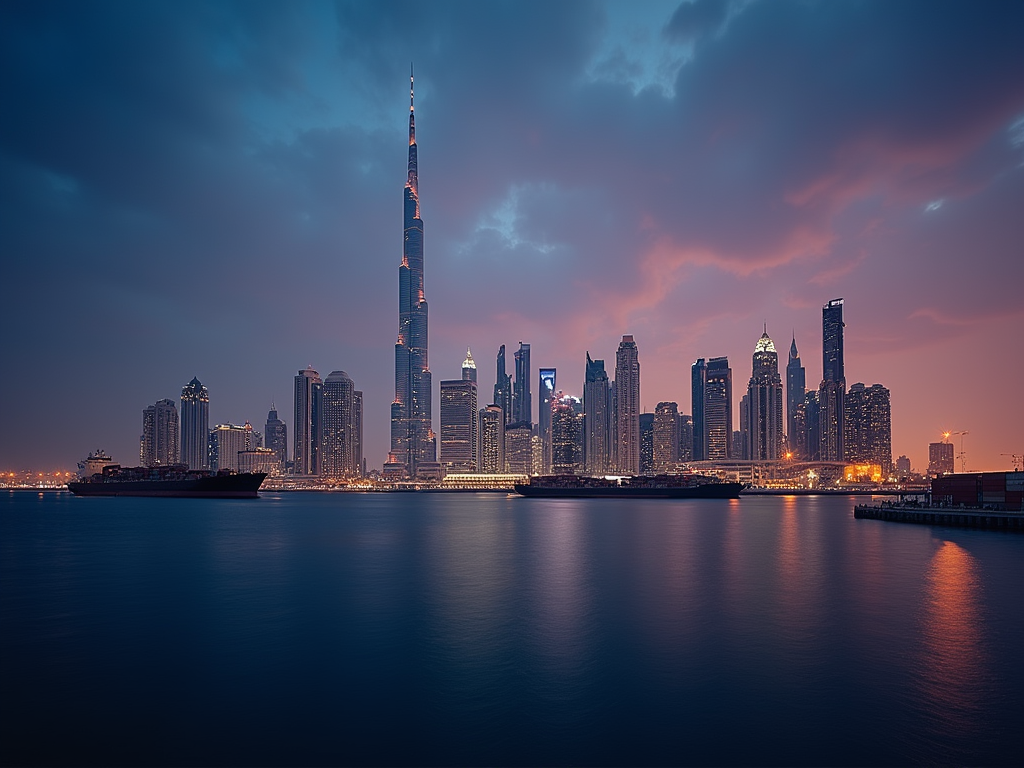Dubai stands out as a global hub for international trade and commerce thanks to its strategic location, modern infrastructure, and business-friendly policies. The city’s geographical positioning between Europe, Asia, and Africa allows easy access to emerging markets, making it an ideal base for businesses to operate globally. This article delves into the key factors that contribute to Dubai’s reputation as a trade powerhouse.
Strategic Geographical Location

One of the most compelling reasons Dubai is favored for international trade is its strategic location. Situated at the crossroads of major global trade routes, Dubai serves as a bridge connecting the East and West. This advantageous positioning facilitates easy access to various markets, enhancing its attractiveness for businesses looking to enter or expand in these regions. The Emirates’ robust air and maritime networks play a significant role in this dynamic, allowing for swift and efficient transportation of goods and services.
Furthermore, Dubai’s ports, particularly Jebel Ali Port, are among the largest and busiest in the world, handling a significant portion of regional trade. Their advanced facilities and capabilities make shipping logistics more manageable for companies of all sizes. Additionally, Dubai International Airport is strategically located, with numerous international flights connecting it to major cities across the globe. This connectivity promotes seamless trade and commerce, enabling businesses to operate without hindrance.
Business-Friendly Environment

Dubai has established a reputation for being exceptionally business-friendly, attracting companies from all over the globe. The government has implemented various policies aimed at reducing bureaucratic barriers, allowing businesses to set up and operate with ease. The establishment of Free Trade Zones, which allow for 100% foreign ownership, enables international companies to thrive without local partnerships. This factor is particularly appealing for foreign investors looking for a foothold in Middle Eastern markets.
Additionally, Dubai offers low taxation rates, with no corporate tax in most Free Zones and a straightforward regulatory framework which enhances the ease of doing business. The emirate’s commitment to innovation and its drive towards becoming a Smart City provide an attractive proposition for tech companies and startups. Furthermore, the government consistently invests in infrastructure and technology, ensuring that businesses have access to state-of-the-art facilities that support growth and expansion.
Modern Infrastructure and Logistics
Dubai is known for its world-class infrastructure, which plays a critical role in cementing its status as a leading hub for international trade. The city’s transportation system is highly developed, featuring extensive road networks, rail systems, and high-tech public transportation options. This infrastructure ensures that goods can be moved quickly and efficiently throughout the region.
Moreover, the city’s logistics facilities are equipped with advanced technology that enhances supply chain efficiency. Warehousing, distribution centers, and customs facilities are built to handle large volumes of cargo, making it easier for businesses to manage inventory and meet customer demands. The use of digital platforms and tracking systems further streamlines operations, enabling real-time monitoring of shipments and inventory.
Dubai’s economy is remarkably diverse, significantly contributing to its attractiveness for international trade. Instead of relying solely on oil exports, the emirate has expanded into various industries, including tourism, technology, finance, and real estate. This diversification provides numerous opportunities for businesses in different sectors to engage in trade, thus fostering a robust commercial ecosystem.
Additionally, Dubai’s status as a financial hub with numerous international banks and financial institutions operating in the city provides businesses with access to funding and investment opportunities. Local regulations are designed to encourage foreign partnerships, allowing companies to leverage local knowledge while expanding their reach. The emirate’s ambitious plans for future economic development continue to attract investments, ensuring a continuously evolving trade environment.
Conclusion
In summary, Dubai’s strategic location, business-friendly policies, modern infrastructure, and diverse economy make it the best place for international trade and commerce. With its commitment to innovation and growth, the emirate is well-positioned to serve as a global business hub, attracting investment, fostering entrepreneurship, and promoting international collaborations. Now more than ever, businesses seeking to expand in global markets should consider Dubai as their primary location for operations.
Frequently Asked Questions
1. What are the benefits of establishing a business in Dubai?
Establishing a business in Dubai offers numerous benefits, including 100% foreign ownership in specific Free Zones, low taxation rates, a vibrant economy, and a strategic geographical location for accessing diverse markets.
2. How does Dubai facilitate international trade?
Dubai facilitates international trade through its well-developed transportation network, modern logistics facilities, Free Trade Zones, and regulatory frameworks that promote ease of doing business.
3. What industries thrive in Dubai’s economy?
Dubai’s economy is diverse, with thriving industries including tourism, technology, real estate, finance, logistics, and trade, making it an attractive destination for various types of businesses.
4. What role does Jebel Ali Port play in international trade?
Jebel Ali Port is a key asset for Dubai’s international trade, being one of the largest and busiest ports globally. It handles a significant volume of cargo, facilitating easy shipping and logistics for businesses.
5. How does Dubai support startups and new businesses?
Dubai supports startups by offering various incubation programs, access to funding, mentorship opportunities, and an ecosystem that encourages innovation, making it easier for new businesses to thrive.


